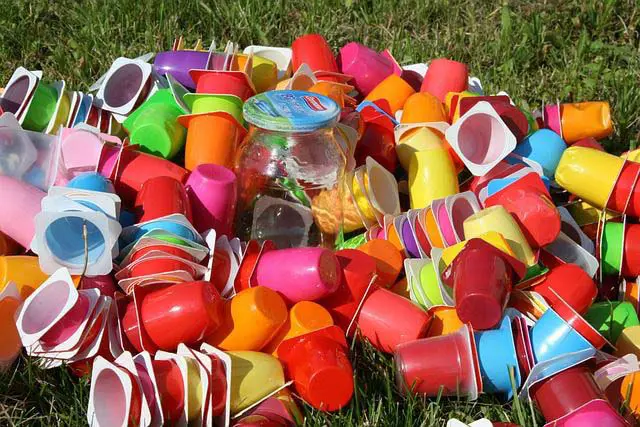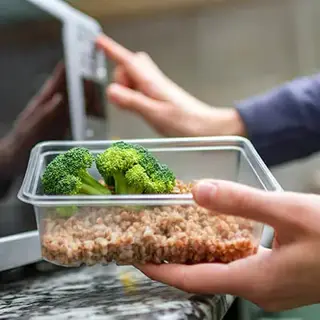In the battle against the plastic soup, it’s especially important that packaging decomposes quickly in the sea. In other words: in water with a low temperature, little oxygen, and little sunlight. That, however, is not what companies mean when they talk about ‘100% compostable’, or biodegradable plastic. Here, they are referring to plastic that is made from natural raw materials like maize, cane sugar, or potatoes rather than oil. Nonetheless, these types of biodegradable plastics still have similar characteristics to conventional plastic, especially once they reach the marine environment.
The problem with biodegradable plastic
Biodegradable plastics made of natural materials such as maize or cane sugar, are used for food packaging, disposable cups, bags, and other similar products. A move to compostable bio-based plastics is attractive to businesses for reasons beyond the reduction of plastic pollution: by using biodegradable plastics, companies are less dependent on oil and the accompanying fluctuations in the prices of oil around the world. Compostable plastics also have a lower CO-2 emission rate. In the Netherlands, there are lower packaging taxes for companies that choose biodegradable plastics, but they also have disadvantages. To obtain the biomass needed for the production of compostable plastic, valuable agricultural land is needed.
Biodegradable plastics made of natural materials such as maize or cane sugar, are used for food packaging, disposable cups, bags, and other similar products. A move to compostable bio-based plastics is attractive to businesses for reasons beyond the reduction of plastic pollution: by using biodegradable plastics, companies are less dependent on oil and the accompanying fluctuations in the prices of oil around the world. Compostable plastics also have a lower CO-2 emission rate. In the Netherlands, there are lower packaging taxes for companies that choose biodegradable plastics, but they also have disadvantages. To obtain the biomass needed for the production of compostable plastic, valuable agricultural land is needed.
Bioplastics: confusion for the Consumer
There is a lot of confusion surrounding bioplastics because the term is used to convey different things. Does it mean plastic made from biomass, like maize or starch, with characteristics that are the same as those of oil-based plastics? Or does it mean plastic that is biodegradable? And in the latter case, can they be thrown on the backyard compost heap, or do they need to be industrially composted? The different types of bioplastic cannot be easily distinguished from oil-based plastic. They often end up being mixed when collected for recycling, either in the plastic container or in the container for organic waste. This corrupts either the recycling process for plastic or the composting process for organic material.
There is a lot of confusion surrounding bioplastics because the term is used to convey different things. Does it mean plastic made from biomass, like maize or starch, with characteristics that are the same as those of oil-based plastics? Or does it mean plastic that is biodegradable? And in the latter case, can they be thrown on the backyard compost heap, or do they need to be industrially composted? The different types of bioplastic cannot be easily distinguished from oil-based plastic. They often end up being mixed when collected for recycling, either in the plastic container or in the container for organic waste. This corrupts either the recycling process for plastic or the composting process for organic material.



